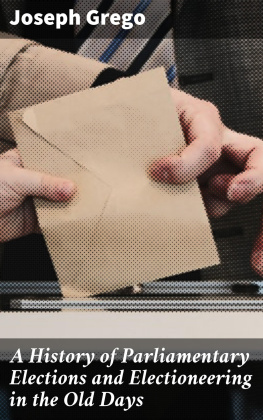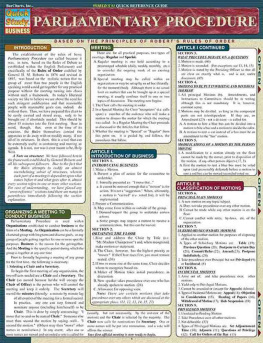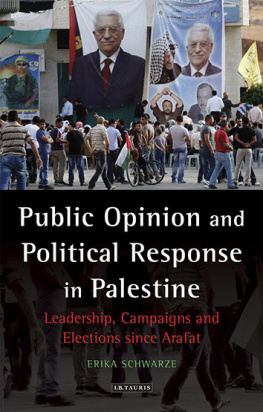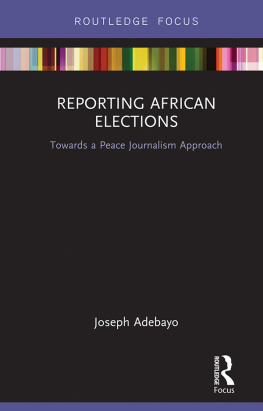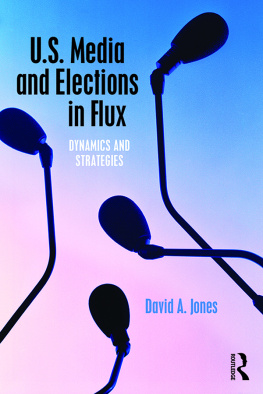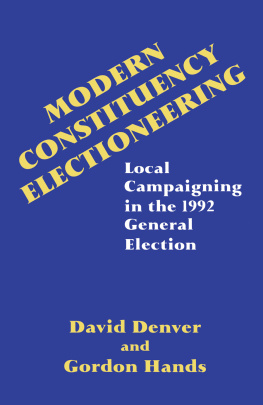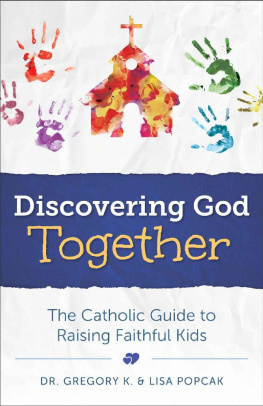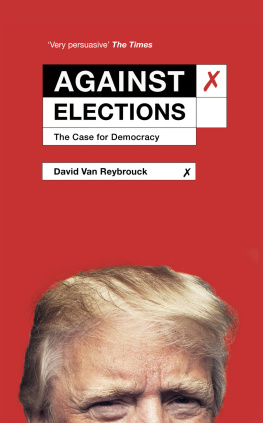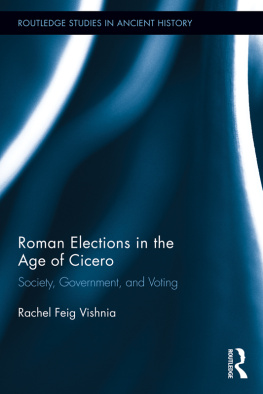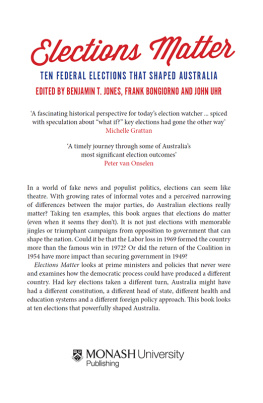Joseph Grego - A History of Parliamentary Elections and Electioneering in the Old Days
Here you can read online Joseph Grego - A History of Parliamentary Elections and Electioneering in the Old Days full text of the book (entire story) in english for free. Download pdf and epub, get meaning, cover and reviews about this ebook. year: 2019, publisher: Good Press, genre: Romance novel. Description of the work, (preface) as well as reviews are available. Best literature library LitArk.com created for fans of good reading and offers a wide selection of genres:
Romance novel
Science fiction
Adventure
Detective
Science
History
Home and family
Prose
Art
Politics
Computer
Non-fiction
Religion
Business
Children
Humor
Choose a favorite category and find really read worthwhile books. Enjoy immersion in the world of imagination, feel the emotions of the characters or learn something new for yourself, make an fascinating discovery.
- Book:A History of Parliamentary Elections and Electioneering in the Old Days
- Author:
- Publisher:Good Press
- Genre:
- Year:2019
- Rating:5 / 5
- Favourites:Add to favourites
- Your mark:
- 100
- 1
- 2
- 3
- 4
- 5
A History of Parliamentary Elections and Electioneering in the Old Days: summary, description and annotation
We offer to read an annotation, description, summary or preface (depends on what the author of the book "A History of Parliamentary Elections and Electioneering in the Old Days" wrote himself). If you haven't found the necessary information about the book — write in the comments, we will try to find it.
Joseph Grego: author's other books
Who wrote A History of Parliamentary Elections and Electioneering in the Old Days? Find out the surname, the name of the author of the book and a list of all author's works by series.
A History of Parliamentary Elections and Electioneering in the Old Days — read online for free the complete book (whole text) full work
Below is the text of the book, divided by pages. System saving the place of the last page read, allows you to conveniently read the book "A History of Parliamentary Elections and Electioneering in the Old Days" online for free, without having to search again every time where you left off. Put a bookmark, and you can go to the page where you finished reading at any time.
Font size:
Interval:
Bookmark:
| Note: | Images of the original pages are available through Internet Archive/American Libraries. See https://archive.org/details/historyofparliam00greg |
OF
PARLIAMENTARY ELECTIONS
AND ELECTIONEERING
IN THE OLD DAYS
SHOWING THE STATE OF POLITICAL PARTIES AND PARTY
WARFARE AT THE HUSTINGS AND IN THE HOUSE OF
COMMONS FROM THE STUARTS TO QUEEN VICTORIA
CANDIDATES ADDRESSING THEIR CONSTITUENTS.
ILLUSTRATED FROM THE ORIGINAL POLITICAL SQUIBS, LAMPOONS
PICTORIAL SATIRES, AND POPULAR CARICATURES OF THE TIME
BY
JOSEPH GREGO
AUTHOR OF JAMES GILLRAY, THE CARICATURIST: HIS LIFE, WORKS, AND TIMES
ROWLANDSON, THE CARICATURIST: HIS LIFE, TIMES, AND WORKS, ETC.
London
CHATTO AND WINDUS, PICCADILLY
1886
[The right of translation is reserved]
Your Lordships and Your Graces,
By loathing common honesty,
And lauding commonplaces....
I think the Whigs are wicked Knaves
(And very like the Tories)
Who doubt that Britain rules the waves,
And ask the price of glories.
No less a friend to governmenthe held
That he exactly the just medium hit
Twixt place and patriotism; albeit compelld,
Such was his sovereigns pleasure (though unfit,
He added modestly, when rebels raild),
To hold some sinecures he wishd abolishd,
But that with them all law would be demolishd.
| PAGE | |
| The assembling of parliamentsSynopsis of parliamentary historyOrders for the attendance of membersQualifications for the franchise: burgesses, burgage-tenures, scot and lot, pot-wallopers, faggot-votes, splittingDisqualifications: alms, charity, faggots, occasionalityElection of knights of the shire, and burgessesOutlines of an election in the Middle AgesQueen Elizabeth and her faithful CommonsAn early instance of buying a seat in the CommonsReturns vested in the municipal corporations; Money makes the mayor to goPrivileges of parliamentKnights girt with a swordInferior standing of the citizens and burgesses sent to ParliamentReluctance of early constituencies to sending representatives to parliamentPaid membersMembers chosen and nominated by the great familiesThe Earl of Essex nominating his partisans and servantsExemption from sending representatives to the Commons esteemed a privilegeThe growth of legislative and electoral independenceThe beginning of contested electionsCoercion at electionsLords-lieutenant calling out the train-bands for purposes of intimidationEarly violenceNug Antiqu; the election of a Harrington for Bath, 1658-9; the present of a horse to paid membersThe method of election for counties, cities, and boroughsRelations of representatives with their constituentsThe wages of members of parliamentExtracts from the Proceedings of Lynn RegisAn account rendered to the burgessesThe civil warsPeers returned for the Commons in the Long Parliament after the abolition of the House of Lords. | 1 |
| Influence of administration under Charles I.Ballad on the CommonwealthHouse of Commons: A General Sale of Rebellious Household StuffThe Parliament under the RestorationPepys and Prynne on the choosing of knights of the shireBurgesses sent up at the discretion of the sheriffsThe kings writEvils attending the cessation of wages to parliamentary representativesAndrew Marvells ballad on a venal House of CommonsThe parliament waiting on the kingCharles II. and his CommonsRoyal Resolutions, and disrespect for the CommonsThe Earl of Rochester on Charles II.s parliamentInterference in electionsIndependence of legislators versus paid membersThe Peers as born legislators and councillorsThe Pensioner Parliament coincident with the remission of salaries to members of the CommonsAn Historical Poem, by Andrew MarvellAndrew Marvell as a paid member; his kindly relations with his Hull constituentsWrit for recovering arrears of parliamentary wagesUncertainty of calling another parliamentThe Duke of Buckinghams intrigues with the Roundheads; his LitanyDegradation of parliamentParody of the kings speechRelations of Charles II. and his CommonsSummary of Charles II.s parliamentsPetitioners, addressers, and AbhorrersThe right of petitioning the throneThe Convention ParliamentThe Long Cavalier ParliamentThe Pensioner Parliament and the statute against corruptionThe Chequer InnThe Parliament House to be letThe Habeas Corpus ParliamentThe country preparing for Charles II.s fourth parliamentElection ballads: The Poll,Origin of the factions of Whigs and ToriesWhig and Tory balladsA Tory in a Whigs CoatA Litany from Geneva, in answer to A Litany from St. OmerThe Oxford Parliament of eight daysThe Statesmans AlmanackA group of parliamentary election ballads, 1679-80Ballad on the Essex petitionsThe Earl of Shaftesburys Protestant AssociationA Hymn exalting the Mobile to LoyaltyThe Buckingham balladBribery by Sir Richard Timber TempleThe Wiltshire balladOld SarumPetitions against prerogativeThe royal pretensions to absolute monarchyThe Tantivies, or upholders of absolute kingly rights over Church and StatePlain Dealing; or, a Dialogue between Humphrey and Roger, as they were returning home from choosing Knights of the Shire to sit in Parliament, 1681; Hercules RideingA Speech without-doors, made by a Plebeian to his Noble FriendsPhilippe de Comines on the British ConstitutionOn freedom of speechA true CommonwealthThe excited state of parties at the summoning of the Oxford Parliament, 1681Ballads on the Oxford ParliamentThe impeachment of Fitz-Harris, and the proposal of the opposition to exclude the Duke of York from the Protestant successionSquabble on privilege between the Peers and CommonsThe Oxford Parliament dismissed, after eight days, on this pretenceThe Ghost of the Late Parliament to the New One to meet at OxfordOn Parliament removing from London to OxfordOn his Majestys dissolving the late Parliament at OxfordA Weeked Parliament. |
Font size:
Interval:
Bookmark:
Similar books «A History of Parliamentary Elections and Electioneering in the Old Days»
Look at similar books to A History of Parliamentary Elections and Electioneering in the Old Days. We have selected literature similar in name and meaning in the hope of providing readers with more options to find new, interesting, not yet read works.
Discussion, reviews of the book A History of Parliamentary Elections and Electioneering in the Old Days and just readers' own opinions. Leave your comments, write what you think about the work, its meaning or the main characters. Specify what exactly you liked and what you didn't like, and why you think so.

